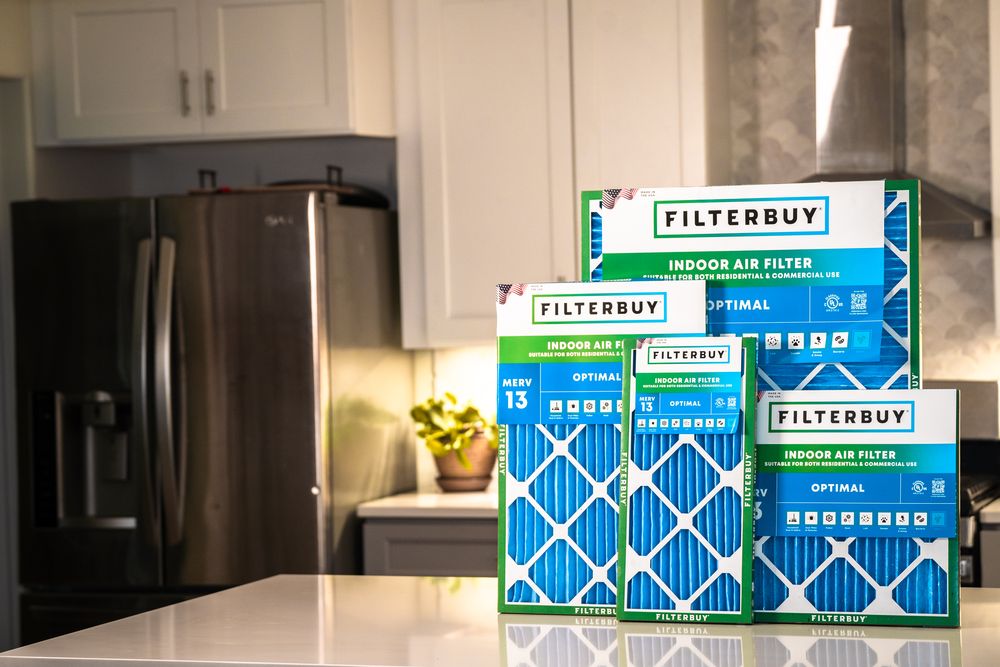The Hidden Key to a Smart HVAC Installation: Why Your Air Filter Choice Matters
When homeowners invest in a new HVAC system, they typically focus on brands, SEER ratings, and installation costs but one overlooked factor can make or break your system’s performance: the air filter.
Through years of experience working with HVAC efficiency, I’ve seen firsthand how the wrong filter choice can lead to airflow restrictions, increased energy bills, and premature system wear. Many homeowners don’t realize that a filter does more than just trap dust; it directly impacts how well your new HVAC unit performs, how clean your indoor air stays, and how much money you’ll spend on maintenance down the line.
In this guide, we’ll uncover why your air filter should be part of the HVAC installation conversation, how different filter types affect performance, and what to consider to ensure your home stays comfortable, efficient, and healthy for years to come.
Top Takeaways
1️⃣ Air filters affect HVAC efficiency
The wrong filter restricts airflow & increases energy costs.
2️⃣ Higher MERV isn’t always better
Too restrictive = system overworks & wastes energy.
3️⃣ Find the right balance
Choose an HVAC air filter that improves air quality without blocking airflow.
4️⃣ Consult an HVAC expert
Not all systems can handle high-MERV filters—get advice first.
5️⃣ Replace filters regularly
Every 60-90 days (or 30-60 days with pets/allergies) for best performance.
Real-World Insight: The Wrong Filter Almost Ruined a New HVAC System
The Problem: High Bills & Poor Performance
Mark installed a high-efficiency HVAC system but quickly noticed:
Weak airflow & uneven cooling
Rising energy bills
System struggling to keep up
The Cause: A Restrictive Air Filter
The Fix: Choosing the Right Filter
The Lesson: Filters Impact More Than Air Quality
Pro Tip:
Before installing an HVAC system, ask your installer about the best filter type. The right choice prevents energy waste, strain, and costly repairs.

"Many homeowners focus on the HVAC unit itself, but from my experience, the air filter is just as critical to long-term performance. I've seen high-efficiency systems struggle simply because the wrong filter restricted airflow, forcing the unit to work harder and wear out faster. A well-chosen filter doesn’t just improve air quality—it ensures your system runs efficiently, reduces maintenance costs, and extends its lifespan. The right HVAC installation starts with the right filter."
Supporting Statistics: Why the Right Air Filter Matters
Choosing the wrong air filter can reduce efficiency, increase costs, and restrict airflow. Here’s why:
1. Energy Consumption & HVAC Performance
2. HVAC Systems Waste Energy Without Proper Filters
3. MERV Ratings: Not One-Size-Fits-All
Key Takeaway
Final Thoughts: The Right Filter = Better HVAC Performance
Many homeowners unknowingly reduce their HVAC efficiency by choosing the wrong air filter. From my experience, I’ve seen:
The Truth About MERV Ratings
Key Takeaway
Next Steps: Take Action Today
1. Check Your Air Filter
2. Choose the Right MERV Rating
3. Consult Your HVAC Installer
4. Replace Filters Regularly
5. Take Action Now
✅ The right filter ensures better air quality, lower bills, and a longer-lasting HVAC system.
Frequently Asked Questions
1. How does my air filter affect my HVAC?
2. Is a higher MERV rating always better?
3. How often should I replace my filter?
4. What happens if I use the wrong filter?
5. How do I choose the best filter?
Selecting the right HVAC air filter plays a crucial role in maintaining system efficiency and indoor air quality, especially when investing in a new installation. A high-performance pleated filter helps capture airborne particles and enhance airflow, making the 20x24x1 option a reliable choice. For those prioritizing advanced filtration with MERV 13 efficiency, the 12x12x1 model is designed to trap finer contaminants for improved air purity. If you need a durable filter that supports system longevity, consider this option. Another excellent choice is a MERV 11 pleated filter, offering a balance of filtration and airflow efficiency, available in a 20x25x2 size. Choosing high-quality filters from the start ensures cleaner air, prolonged HVAC lifespan, and a more efficient system overall.
Learn more about HVAC Care from one of our HVAC solutions branches…
Filterbuy HVAC Solutions - Weston FL
2573 Mayfair Lane Weston FL 33327
(754) 296-3528
https://maps.app.goo.gl/E3tjmKf5VSWYghGc7







